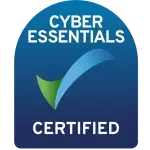
Professionals must acquire numerous competencies in the modern workplace to ensure that teams, departments, and businesses function effectively. To facilitate learning and development, many professionals have turned to technology, utilizing digital mixed media in combination with traditional instruction methods to aid in absorbing theories and applications. This is where the purpose of the Learning Management System (LMS) comes in.
By using an LMS for banking, companies can create an optimal learning environment, not just limited to compliance training content or subject matter but also to the administration, documentation, tracking, reporting, automation, and delivery of educational courses and complete training programs. With corporate training no longer confined to the physical classroom, cloud-based learning management systems can act as a gateway to provide guided and measurable learning opportunities without limitations.
IN THIS ARTICLE...
LMS in Banking and Financial Services
The finance industry has always been one of the global economy’s most dynamic and rapidly evolving sectors. Organizations in this field must constantly upskill their employees to stay competitive and ensure that their knowledge and skills are current.
The traditional approach to learning and skills development, such as attending seminars and workshops, may not be enough to keep up with the ever-changing landscape of the finance industry. Thus, learning management systems for banking can be an effective tool for finance professionals.
An LMS platform is a digital platform that provides training materials and learning solutions to organizations. The platform can be accessed by employees and trainers anywhere in the world, making it an ideal solution for global organizations. The best learning tech offers a range of features, including the following.
- Course Content Creation
- Course Delivery
- Assessments
- Tracking
- Reporting
- Certification
As more companies adopt new training methods, the global market for learning management continues to expand each year. According to Fortune Business Insights, the market for learning management systems is poised to exhibit substantial growth during the forecast period, with a projected increase from USD 16.19 billion in 2022 to USD 40.95 billion in 2029, representing a CAGR of 14.2%.
Key Features of a Powerful LMS for Banking
The features you prioritize will depend on your organization’s needs and goals. If you currently have inefficient learning management solutions, looking for alternative LMS systems should be your top priority. There are numerous LMS for banking and finance available today to choose from. So, you must be mindful when selecting the best LMS systems for your company.
A thorough needs assessment and evaluation process can help identify the learning management system features and benefits that are most important for your organization’s success. Here are some essential functionalities that you can consider.
- Ease of use: The interface should be intuitive, and the process of creating courses, managing learners, and tracking progress should be simple.
- Customization: Customization ensures the LMS aligns with your organization’s needs and goals.
- Course creation and management: If it’s a full LCMS (Learning Content Management System) it should provide tools for creating and managing courses, including a course authoring tool, multimedia integration, and assessment creation.
- Learner engagement: Features like discussion forums, chat rooms, and social learning tools can facilitate collaboration and enhance the learning experience.
- Mobile accessibility: The platform should be accessible on mobile devices, allowing learners to access courses on the go.
- Security and compliance: It must comply with industry standards, including data privacy regulations such as GDPR and HIPAA.
- Integrations: Integration with other tools and systems your organization uses, such as HRIS, CRM, or e-commerce platforms, is critical in LMS implementation.
- Support and training: The LMS should provide administrators and learners with comprehensive support and training resources. This includes online documentation, tutorials, and customer support channels like email, phone, or chat.
Advantages of LMS Platforms in the Finance Industry
The finance industry has unique training and development needs that require specialized solutions. LMS platforms have emerged as an ideal solution for the finance industry due to their flexibility, scalability, and personalization features. The following are the benefits of LMS for employees in the finance industry.
1. Flexibility and Accessibility
One of the most noteworthy advantages of an LMS in banking is its flexibility and accessibility. LMS platforms offer employees the flexibility to learn at their own pace, anytime and anywhere, unlike traditional learning approaches that necessitate attending in-person classes or workshops.
According to research conducted by Technavio, mobile learning is one of the fastest-growing markets within the LMS industry, with an annual growth of 23%.
This means employees can fit their training around their work and personal schedules, which can be a significant advantage in a fast-paced industry like finance.
2. Personalized Learning
Another advantage of finance industry LMS platforms is that they can be tailored to meet the individual needs of each employee. This means that learners can focus on the specific areas of finance relevant to their job roles rather than being required to learn a broad range of topics that may not apply to them.
Personalized learning is highly effective in improving employee engagement and knowledge retention. Research shows 93% of high-performing organizations agreed that providing personalized education supports employees in reaching their professional goals more efficiently. Depending on your company’s department and niche experts, it will be easier to expand and grow their learning.
3. Access to up-to-date information
The finance industry constantly evolves, and professionals must stay informed of the latest trends and regulations. Traditional learning methods, such as attending seminars and workshops, may provide valuable information, but the information may quickly become outdated. On the other hand, LMS platforms provide access to up-to-date information in real-time.
LMS platforms can be updated quickly, ensuring learners can access the most current information. For example, if a regulation changes or a new financial product is launched, the content can be updated on the LMS platform almost immediately. This allows finance professionals to stay informed of the latest developments in the industry, giving them a competitive edge.
4. Cost-effective learning
One of the significant advantages of the LMS platform is cost-effectiveness. Traditional learning methods, such as classroom training, can be expensive as they require a physical location, trainers, course materials, and travel expenses. On the other hand, LMS platforms eliminate these costs by providing a digital platform for learning. Organizations can create and deliver courses to employees without incurring the overhead costs of traditional learning methods.
5. Real-Time Feedback
Another advantage of finance industry LMS platforms is that they offer real-time feedback to professionals. Traditional learning methods often involve one-way communication, with little opportunity for interaction or feedback. With LMS platforms, professionals can receive instant feedback on their progress and performance, allowing them to identify areas for improvement and adjust their learning accordingly. This also helps managers track employee progress and identify real-time training needs.
6. Improved Learning Retention
LMS platforms offer a range of features that can improve learning retention. The platform can provide interactive content, quizzes, and assessments that engage employees and help them retain the knowledge they have learned. The platform can also provide reinforcement materials to help employees apply what they have learned in real-life situations.
7. Easy Access to Learning Materials
Access to learning materials is an essential aspect of learning, and LMS platforms make it easy for students to access learning content. Traditional learning methods require students to carry textbooks, notebooks, and other materials to classes. This can be challenging, especially for professionals who are always on the move.
LMS for banking offer easy access to learning materials, eliminating finance professionals’ need to carry physical books and materials. All the learning material is available online; they can access it from any device with an internet connection. This makes it easier for students to study and learn, regardless of location.
8. Boost Employee Satisfaction
According to LinkedIn’s 2023 Workplace Learning Report, 89% of professionals agree that building employee skills proactively helps navigate work in the future.
An LMS is a critical investment for any financial services organization, as it provides a platform for continuous learning. It can help organizations create a learning and development culture, improving employee satisfaction, performance, and retention. By investing in employee training and development through an LMS, companies can reduce turnover rates and improve their bottom line.
9. Insightful Data and Analytics
By utilizing sophisticated reporting and analytics tools, administrators can extract trends from automatically generated real-time reports and compare them at various stages of the learning process. This provides valuable insights into the impact of online training.
Real-time metrics make it easier to track progress toward learning objectives, business outcomes, and eventual return on investment, ensuring that you stay on the right track.
Finance organizations can significantly enhance the efficiency of customer service, operations, and employee satisfaction by utilizing an LMS to generate automated reports and presenting key metrics in a clear dashboard to those responsible for implementing training policies.
Another tool that finance professionals are using to make intelligent decisions based on crucial data and figures is an ERP system.
10. Easy Access to Industry Experts
LMS platforms offer an advantage over traditional learning methods by granting access to an extensive range of resources and expertise. In the finance industry, where regulations and rules undergo constant changes, it becomes crucial for professionals to stay up to date with the latest developments.
Learning management systems enable finance industry experts to access diverse knowledge and expertise from various sources, ensuring they remain informed and current on the most recent trends and best practices in their field.
Grow Your Business Productivity with Robust LMS Solutions
Learning Management Systems are at the forefront of online learning technology as they provide a centralized platform for online learning and offer a range of tools to create, deliver, and manage courses effectively. With features like automated allocation, progress tracking, and personalized learning paths, an LMS in banking can help learners and educators achieve their goals efficiently.
If you’re looking for a reliable LMS for financial services, consider trying Intellek LMS. Named as the Best Cloud-Based Employee Onboarding & Training Solution Provider in the Wealth & Finance – FinTech Awards. With its user-friendly interface, powerful features, and excellent customer support, our LMS can help you create engaging online learning experiences that drive success.
Take your learning journey to the next level – start exploring the benefits of Intellek LMS now!
Intellek (formerly TutorPro) is a founding member of the learning technology industry. With a presence in the USA, UK, Canada, and the EU – for over 30 years we have pioneered the development of cutting-edge eLearning software and online training solutions, with a large and diverse portfolio of international clientele.
Disclaimer: We use all the tools available including generative AI to create relevant and engaging content.





